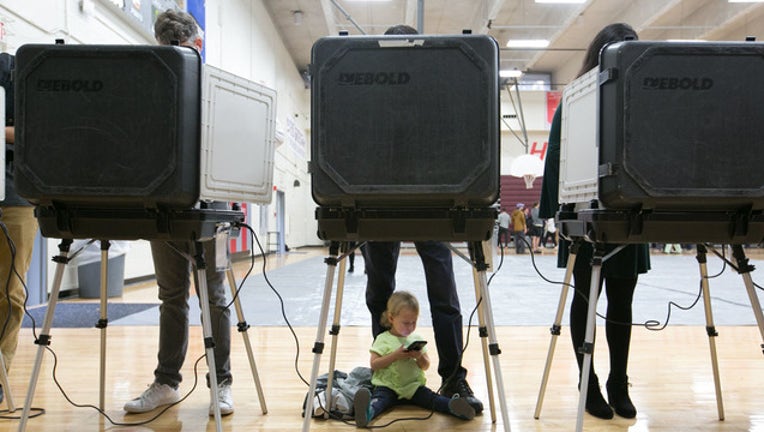Georgia buys new voting machines amid challenge to old system

Photo by Jessica McGowan/Getty Images
ATLANTA (FOX 5 Atlanta) - Despite legal challenges, Georgia is moving ahead with the purchase of a new $106 million voting system with touchscreen computers that print a paper record, the secretary of state announced Monday.
The new machines will replace Georgia's current touchscreen voting machines, which have been in use since 2002 and offer no verifiable paper trail.
Cybersecurity experts and election integrity activists warn that the new machines suffer from many of the same problems as the old ones, including being vulnerable to hacking, and advocate for a system using hand-marked paper ballots.
The purchase comes months after Republican Gov. Brian Kemp won a highly contentious race against Democrat Stacey Abrams, and as the state faces several lawsuits over its handling of elections.
In one, U.S. District Judge Amy Totenberg is weighing whether to order the state to immediately abandon its outdated voting machines in favor of an interim solution for this fall's special and municipal elections.
Totenberg said the state had allowed its voting system to become "way too old and archaic" and now has a deep hole to dig out of to ensure that the constitutional right to vote is protected.
MORE: Judge could order Georgia to use paper ballots in fall elections
Republican Secretary of State Brad Raffensperger's office says the new machines will be in place for Georgia's presidential primaries on March 24, leaving officials roughly eight months to fully implement the system throughout 159 counties.
Raffensperger selected Dominion Voting Systems as the state's new vendor after a competitive bidding process.
Legislation passed by the Georgia General Assembly this year and signed into law by Kemp laid out specifications. It called for a system where voters make their selections on an electronic touchscreen, called a ballot marking device, which prints a paper record of a voter's selections. The voter can then review their selections on the printout before it is scanned and tabulated.
Wenke Lee unsuccessfully lobbied for a system using hand-marked paper ballots instead. He's a professor of computer science at Georgia Tech and was the lone cyber expert on the panel that provided recommendations to the legislature. He argues that ballot marking devices are susceptible to hacking and that voters aren't capable of — and likely won't take the time to — properly review their paper printout for errors.
"It's not the outcome I was hoping for," Lee said in a recent interview. "With the way technology keeps changing, keeps improving, and also the threat landscape keeps changing, I think it's a pretty dumb idea to sink a huge amount of money into a system and then be stuck with it for like 15 years."
Several county elections officials testified this year that the new machines would be the easiest to train for and administer, because they are similar to the current touchscreens. The new voting machines can also accommodate all Georgians, including those with disabilities, under one common system.
"Elections security is my top priority," Raffensperger said in a statement Monday. "We look forward to working with national and local elections security experts to institute best practices and continue to safeguard all aspects of physical and cyber-security in an ever-changing threat environment."

